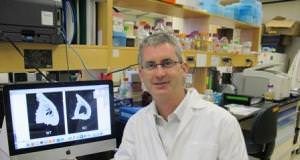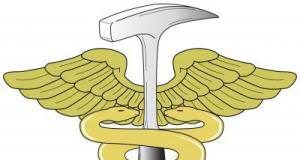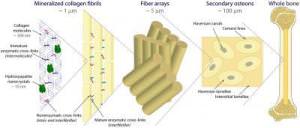Mediterranean Diet Enriched With Olive Oil May Protect Bone
A study to be published in the Endocrine Society’s Journal of Clinical Endocrinology and Metabolism (JCEM) shows consumption of a Mediterranean diet enriched with olive oil for two years is associated with increased serum osteocalcin concentrations, suggesting a protective effect on bone.
Diets High In Salt Could Deplete Calcium In The Body
When sodium leaves a body, it takes calcium along with it, creating risk for kidney stones and osteoporosis. The scientific community has always wanted to know why people who eat high-salt diets are prone to developing medical problems such as kidney stones and osteoporosis.
Discovery Of Epigenetic Links In Cell-Fate Decisions Of Adult Stem Cells...
The ability to control whether certain stem cells ultimately become bone cells holds great promise for regenerative medicine and potential therapies aimed at treating metabolic bone diseases.
Low-Dose Vitamin D May Not Prevent Fractures In Healthy Women –...
Vitamin D and calcium are dietary requirements, but it's unclear how much is best for us. New draft findings by the United States Preventive Services Task Force conclude that for healthy, postmenopausal women, daily supplementation with low levels of vitamin D -- up to 400 international units -- combined with 1,000 milligrams of calcium, does not reduce fracture risk.
Earlier Detection Of Bone Loss May Be In Future: Isotope Analysis...
Are your bones getting stronger or weaker? Right now, it's hard to know. Scientists at Arizona State University and NASA are taking on this medical challenge by developing and applying a technique that originated in the Earth sciences. In a new study, this technique was more sensitive in detecting bone loss than the X-ray method used today, with less risk to patients.
Calcium Supplements Linked To Significantly Increased Heart Attack Risk, Study Suggests
Calcium supplements might increase the risk of having a heart attack, and should be "taken with caution," concludes research published in the online issue of the journal Heart. Furthermore, boosting overall calcium intake from dietary sources confers no significant advantage in terms of staving off heart disease and stroke, the findings indicate.
Genes That Increase The Risk Of Osteoporosis And Fractures Discovered
Researchers at the Sahlgrenska Academy have identified the genetic variations that are believed to cause osteoporosis. The study, published in Nature Genetics and involving leading researchers from Sweden and the world, shows among other interesting facts that women with a higher proportion of genetic variations associated with osteoporosis have a more than 50 percent increased fracture risk.
New Genetic Regions Linked To Bone-Weakening Disease And Fractures
Thirty-two previously unidentified genetic regions associated with osteoporosis and fracture have been identified by a large, worldwide consortium of researchers, including Stanford Prevention Research Center chief John Ioannidis, MD, DSc. Variations in the DNA sequences in these regions confer either risk or protection from the bone-weakening disease. Many, but not all, of the regions encode proteins involved in pathways known to involve bone health.
Risks: Acid Reflux Drugs Tied To Bone Fractures
A new analysis adds to growing evidence that people using proton pump inhibitors to control symptoms of acid reflux are more likely to fracture bones than those who do not. The analysis did not find a similar increase in fracture risk among patients taking older acid reflux medications, called histamine-2 receptor antagonists.
The Brittleness of Aging Bones: More Than Loss of Bone Mass
It is a well-established fact that as we grow older, our bones become more brittle and prone to fracturing. It is also well established that loss of mass is a major reason for older bones fracturing more readily than younger bones, hence medical treatments have focused on slowing down this loss.
No Bones About It: Eating Dried Plums Helps Prevent Fractures and...
When it comes to improving bone health in postmenopausal women -- and people of all ages, actually -- a Florida State University researcher has found a simple, proactive solution to help prevent fractures and osteoporosis: eating dried plums.
Gradual Bone Reduction Seen In Some Birth Control Pill Users
Birth control pills may reduce a woman's bone density, according to a study published online July 13 in The Journal of Clinical Endocrinology and Metabolism by Group Health Research Institute (GHRI) scientists. Impacts on bone were small, depended on the woman's age and the pill's hormone dose, and did not appear until about two years of use. The study size and design allowed the researchers to focus on 14- to 18-year-old teenagers, and to look at how bone density might change when a woman stops using the pill.

















